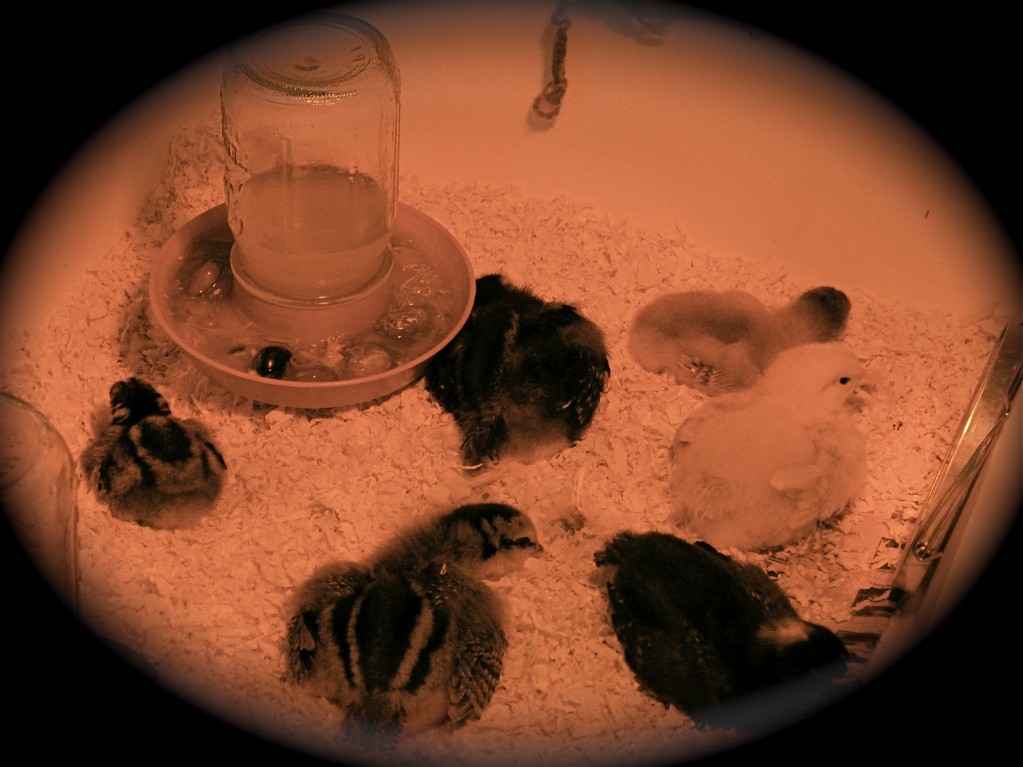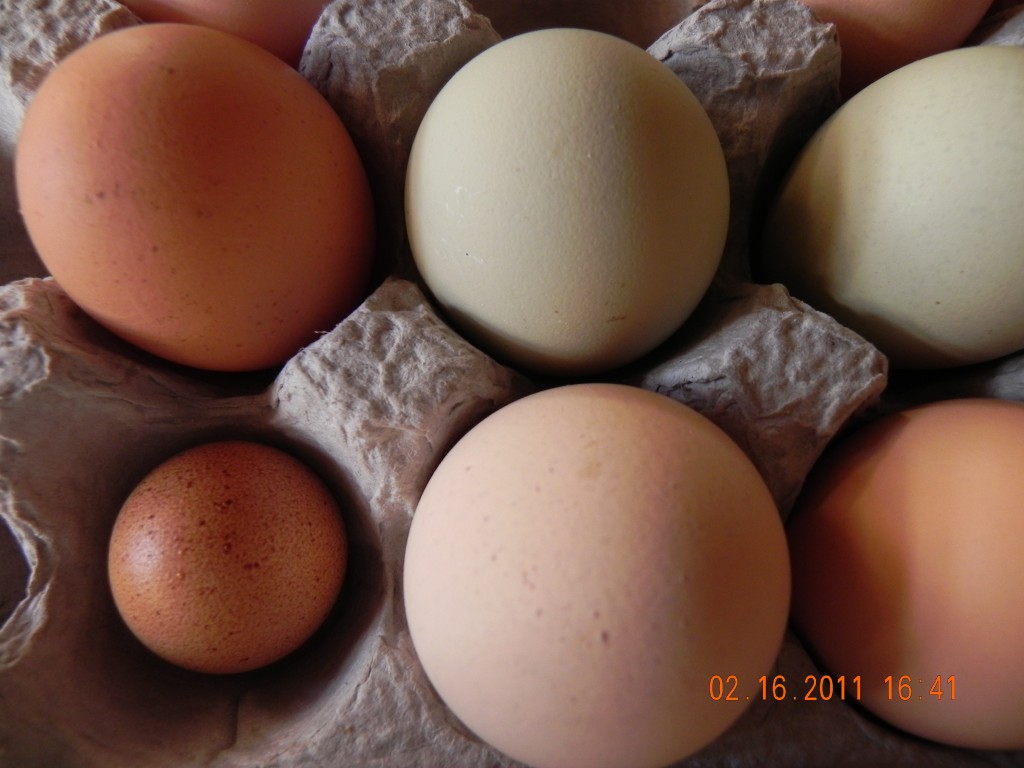 Deciding which breeds of chickens you want for your backyard chicken project is a pretty important decision. There are books and magazine articles on the subject and I found the hatchery catalogues to be quite helpful (and fun to browse through) as you plan on which breeds would fit your needs.
Deciding which breeds of chickens you want for your backyard chicken project is a pretty important decision. There are books and magazine articles on the subject and I found the hatchery catalogues to be quite helpful (and fun to browse through) as you plan on which breeds would fit your needs.
Before making a decision on breeds for you, ask yourself a few questions. Are you raising chickens for eggs, meat, or pets? Do you want steady layers, calm birds, pretty birds, show birds, or just plain sweet birds. Do you have space for the larger breeds or would you prefer a flock of the small bantams? Do you live in a climate that has extremes that may threaten the health of your chickens? Some breeds are called “dual-purpose” breeds so if you put in a “straight run order”, meaning there will be both hens and roosters in the arrival, you will be able to butcher the roosters for meat and keep the hens for eggs. Hey folks, this is the real world!
Now I can only speak about raising chicks for egg layers because this is where my experience lies. When I was searching for the right breeds, I knew what I didn’t want. Growing up we had Leghorns for big beautiful white eggs. They were “flighty” birds and nervous and didn’t make cuddly pets. I knew I was only getting 4-6 hens, and that there was a real chance, that with a calm breed, I could make egg-laying pets. I’d had bantams before, and while they were great at cleaning up bugs in the garden and taking care of chicks, they were “broody” and not the best of layers.

I finally settled on six beautiful, calm (most of the time), self-reliant breeds. They are considered ideal free-range chickens because they are good foragers. I chose an Orpington, Plymouth Rock, Rhode Island Red, silver-laced Wyandotte, golden-laced Wyandotte (all lay large brown eggs) and an Ameraucana (who lays designer olive-green eggs). All of them lay about 5 eggs a week except the Ameraucana. She only averages every other day; but hey, they’re green!
We don’t have a rooster because we have good relations with our neighbors and I want to keep it that way. Roosters are an asset because they are protective of their hens and keep order in the flock. But they do not effect egg-laying. You will still get beautiful, tasty eggs without a rooster in your flock.
Do your research before getting your chicks. Do not get more than your coop can handle (see my article on “A Problem Chicken” that was published in a local newspaper), and nurture them as they grow. A little planning in the beginning can prevent unhappy situations for both you and your hens.



Love your chicken coop and pen! Mine is a leftover dog pen my brother built a long while back. It was bear proof so I kept it. Do you still have Poppy? Thanks for commenting on my blog. I started my blog as a journal to keep track of things around here. I’m always surprised to find that people read my blog, so, just curious… how did you find my blog? Congratulations! You have a lot of useful information on your blog. Pretty chickens!
Our first chickens were Light Brahmas. I would recommend them highly to first timers. Productive layers and very friendly.
Can you let me know the breeds of the chickens in the photo and are they good egg layers
richvdf@gmail.com
My original six were Buff Orpington, Silver-laced Wyandotte, Golden-laced Wyandotte, Ameraucana (laid green eggs), Rhode-Island Red, and Barred Rock. All are good layers of light-brown eggs. The Barred Rock is still living at 8 years and still lays 1-2 eggs per week!
We have 5 Amber-Link and 5 Black Stars and we are very happy with them. They are all friendly, so more than others, but I think with all chickens, it all depends are their “personality.” They are still young, so I have no info about their laying, but I read before getting them that the Amber-Links will lay 250-300 per years and have been known to lay double yolks. The black-stars are to be prolific layers as well. Time will tell as our are only 7 weeks old.
Thank you. I have no experience with these two breeds but they sound lovely. When we raised chicks, they became even tamer as they aged so it sounds like you’ll have a nice flock of hens. Best of luck!